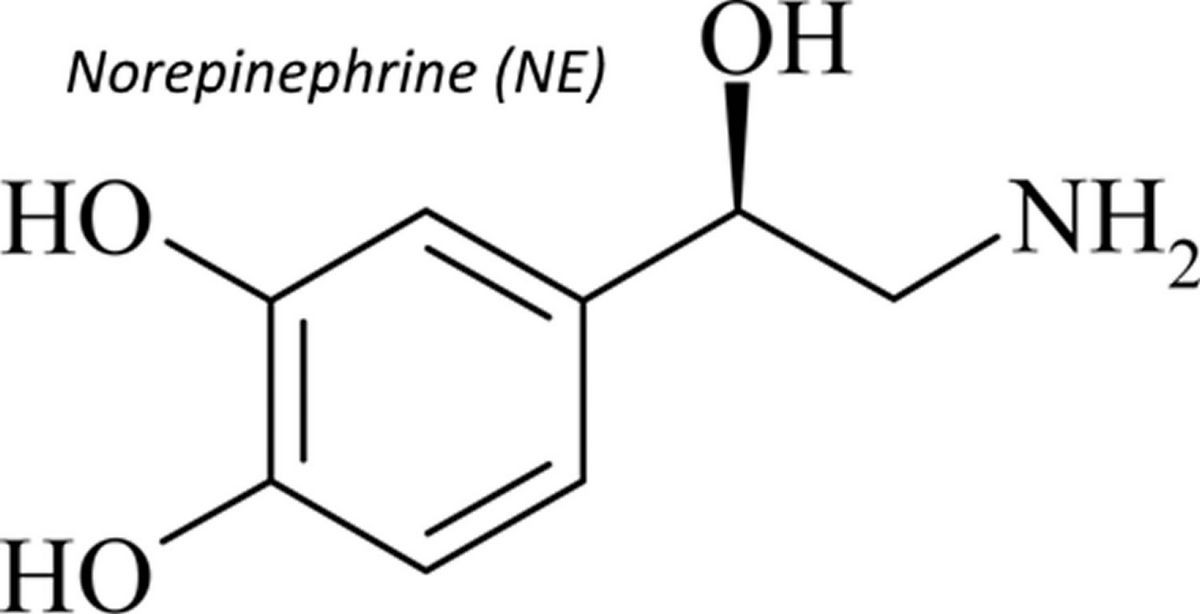
Norepinephrine is a natural substance known as catecholamine synthesized in the brain and present in the central and peripheral nervous systems. It plays a vital role in the fight-or-flight response to danger. Norepinephrine, when used as a medication, treats severe low blood pressure caused by cardiac arrest, circulatory shock, or septic shock. It increases blood pressure by constricting peripheral blood vessels, increasing cardiac output, and dilating coronary arteries to improve blood flow.
Norepinephrine stimulates alpha-1 and beta-1 adrenergic receptors, increasing blood pressure by constricting peripheral blood vessels and increasing heart rate and strength of contractions. It is approved for use in cardiac arrest, profound hypotension, hypotensive states, poliomyelitis, spinal anesthesia, heart attack, septicemia, blood transfusion, and drug reactions. Off-label uses include beta-blocker toxicity, calcium channel-blocker toxicity, and tricyclic antidepressant toxicity.
Do not administer norepinephrine if allergic, hypotensive from low blood volume, have blood clots in peripheral or intestinal blood vessels, or using cyclopropane or halothane anesthetics. It should also be avoided in cases of low tissue oxygen levels, high carbon dioxide levels, and profound hypoxia. Common side effects include reflex slowing down of heart rate, irregular heart rhythm, heart muscle disease, anxiety, confusion, restlessness, transient headache, tremor, shortness of breath, sweating, urinary retention, reduced peripheral blood flow, hypoxia, tissue injury, and gangrene.
Dosages of norepinephrine depend on the condition. In adults, the initial infusion is 8-12 mcg/minute, while in children, it is 0.05-0.1 mcg/kg/minute, both titrated to effect. Overdose can cause symptoms such as headache, severe hypertension, reflex bradycardia, increase in peripheral resistance, and decrease in cardiac output. Norepinephrine can have severe interactions with certain medications and caution is necessary during pregnancy and breastfeeding.
In summary, norepinephrine is a hormone and neurotransmitter involved in the body’s fight-or-flight response. It is used as a medication to treat severe low blood pressure and can have common side effects such as bradycardia, cardiac arrhythmia, and cardiomyopathy. Pregnant and breastfeeding women should consult their doctors before using this medication.


